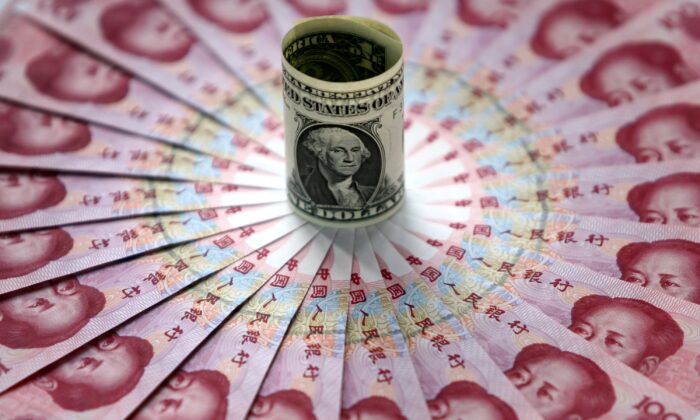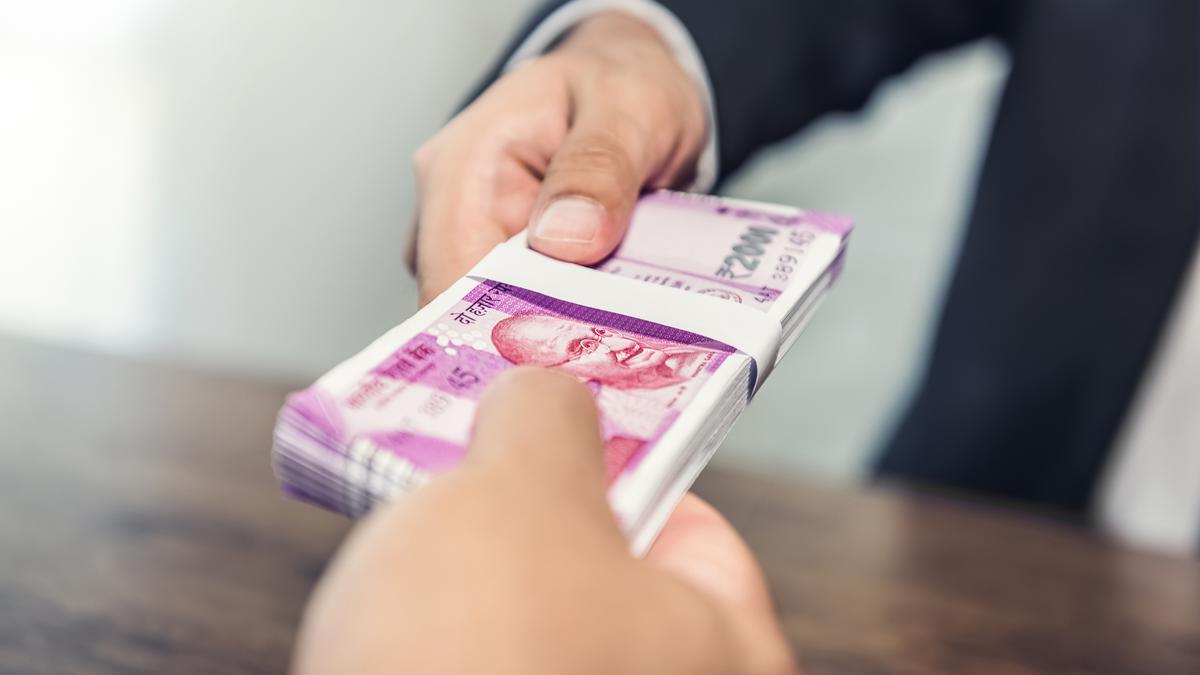jward
passin' thru
China Ditches US Dollars in New Brazil Agreement, Settles 1st LNG Trade in Yuan
Andrew Moran
China and Brazil signed an agreement on March 29 that would abandon the U.S. dollar and carry out trade and financial transactions directly in yuan for reals—and vice versa—a significant step as China, the world’s second-largest economy, continues to accelerate the currency’s presence in the international market.
Both countries noted that they had reached a preliminary agreement to ditch the dollar in January.
The new agreement makes sense for both sides, experts say. China has been Brazil’s top trading partner for more than a decade, representing roughly one-fifth of all imports. China is also the South American nation’s largest export market.
The objective of the arrangement, officials assert, is to slash costs and “promote even greater bilateral trade and facilitate investment.”
“Banco BOCOM BBM announces its membership of CIPS (China Interbank Payment System), which is the Chinese alternative to Swift,” the Brazilian Trade and Investment Promotion Agency (ApexBrasil) said in a statement. “The expectation is the reduction of the costs of commercial transactions with the direct exchange between BRL (real) and RMB (renminbi). The bank will be the first direct participant in this system in South America.”
The Industrial and Commercial Bank of China and Bank of Communications BBM will manage the transactions.
LNG Purchase
The deal comes a day after China settled its first purchase of liquefied natural gas (LNG) in the yuan as the world’s second-largest economy continues to accelerate the currency’s presence in the international market.China National Offshore Oil Corp. (CNOOC), the country’s largest offshore oil and gas producer, negotiated an LNG shipment to France’s TotalEnergies through the Shanghai Petroleum and Natural Gas Exchange (SHPGX), according to Reuters, citing data from the exchange.
The transaction, which contained approximately 65,000 tons of LNG and was sourced from the United Arab Emirates, was completed in a cross-border yuan settlement.
CNOOC noted that this was a potential launchpad for the greater objective of championing multi-currency pricing, payments, and settlements for LNG.
Chinese leader Xi Jinping confirmed during his December 2022 visit to Saudi Arabia that the Beijing regime would increase its use of the SHPGX as a vehicle to complete yuan-denominated settlements of oil and gas transactions.
“China will continue to import large quantities of crude oil from GCC countries, expand imports of liquefied natural gas, strengthen cooperation in upstream oil and gas development, engineering services, storage, transportation and refining, and make full use of the Shanghai Petroleum and National Gas Exchange as a platform to carry out yuan settlement of oil and gas trade,” Xi stated.
In recent years, Beijing has attempted to bolster the yuan when settling oil and gas trades as part of broader efforts to increase its currency in the global economic landscape and diminish the U.S. dollar’s prevalence in international trade.
Yuan for All
Meanwhile, Russian President Vladimir Putin recently announced that Moscow would start to craft payments in yuan in trade with African, Asian, and Latin American nations.“We support the use of Chinese yuan in payments between Russia and countries of Asia, Africa, and Latin America,” Putin said, adding that national currencies are being more actively used in bilateral trade and suggested that “this practice should be encouraged further.”
In February, the Iraqi government confirmed to Reuters that it would allow trade from China to be settled in yuan.
“It is the first time imports would be financed from China in yuan, as Iraqi imports from China had been financed in [U.S.] dollars only,” said Mudhir Salih, the Iraqi government’s economic adviser.
Cambodia has liberalized the utilization of the Chinese yuan.
Earlier this year, Cambodia announced it would allow Chinese tourists to pay for services in yuan rather than the dollar or Cambodian riel.
This directive occurred at around the same time the National Bank of Cambodia (NBC) released a plan to join the yuan Cross-border Interbank Payment System (CIPS). The idea behind CIPS is to offer more worldwide payment options that would enhance trade, investment, and tourism between the two countries through yuan-denominated transactions.
“The NBC has been studying in detail the requirements for CIPS membership since the system was first established in 2015, so the NBC knows what they need, which won’t be new for us,” NBC assistant governor Chea Serey said in February. “Second, the leaders of the two countries have discussed and agreed to this in principle. This will hopefully speed up the process for Cambodia to join CIPS soon.”
The Federal Reserve’s tightening campaign, which strengthened the U.S. dollar last year, has negatively affected the global economy, particularly in developing nations. Typically, these foreign markets require a greater volume of domestic currency to purchase imported dollar-denominated products. Therefore, it has become costly for these countries that borrow U.S. dollars to maintain trade, facilitate financing, and boost the national economy.
Despite the latest developments, the yuan only represents less than 3 percent of global trade. By comparison, the U.S. dollar accounts for roughly 41 percent of world trade.
According to the International Monetary Fund’s (IMF) Currency Composition of the Official Foreign Exchange Reserve (COFER) data, the Chinese renminbi accounted for just 2.56 percent, or $297.79 billion, of world foreign reserves.
posted for fair use




